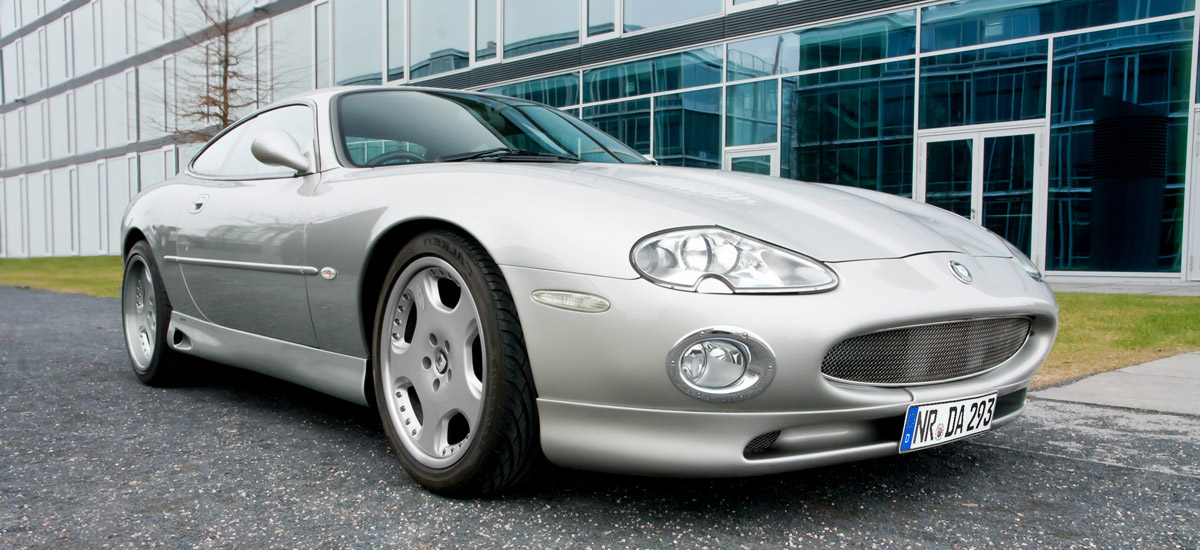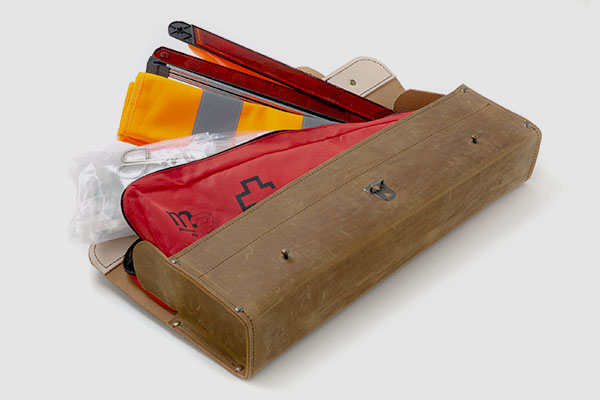Importing classic cars from Great Britain:
How to get your classic car to Germany
Classic cars can still be imported to Germany after Brexit. Here you can find out what you need to know and observe, from the selection of the vehicle to the registration in Germany, so that the classic car import from the UK runs smoothly.

Position: Sale
Updated: 20.10.2023

Straight to the point: Importing classic cars from England after Brexit
With Brexit, there will be some changes in the trade and tax relations between the UK and the EU, especially with regard to the import and registration of vehicles. Whereas the registration of vehicles from the UK in Germany used to be relatively simple if you could show proof of ownership, the vehicle's origin and the technical condition of the vehicle, it is now becoming somewhat more complicated.
- Tax limits were reintroduced. This means that imports from the UK have to be cleared through customs, similar to the classic car imports from the US. This is not only annoying because it is time-consuming, but also costs money: in Germany, for example, 10 % customs duty on the value of the car plus 19 % import sales tax.
- The V5 is mandatory and a technical inspection by an approved body in the country of new registration must also be proven.
- When buying, make sure that your vehicle is eligible for registration in Germany or the EU. Most kit cars, for example, were not before Brexit and are not now.
Vehicle selection in the UK: What you should consider
Nowadays, thanks to the Internet, the selection of classic cars from all over the world is larger than ever. If you are specifically looking for a vehicle from Great Britain, we recommend the following portals:
- www.autotrader.co.uk
- www.ebay.co.uk (search by vehicle type, select category "Car")
- www.pistonheads.com (search in the "Classifieds". Here you will find mainly sporty vehicles)
- www.classiccarsforsale.co.uk (Marketplace for classic vehicles only).
When searching, it is
usually necessary to define a postcode and a radius. As a workaround,
you can easily enter the postcode of the airport of a certain region
and define the radius yourself.
In England, it is customary to express oneself very flowery in every situation in life. This also applies to the vehicle descriptions on the portals mentioned above. You should definitely keep this in mind, because it helps you to put the offers in a realistic framework.
Moreover, the English do not take it too seriously with some defects, because a control light that lights up sporadically or a worn down interior is nothing particularly worth mentioning there. So only when a classic car sounds interesting even a few notches below the description should you take further steps towards buying it.
Here we explain some important terms in English-language advertisements:
- needs TLC (Tender love and care): Means that there are many small things that need to be done to the vehicle.
- mint condition: By German standards a good 4. But probably complete.
- TCS (Top showroom condition): corresponds to condition 3.
- minor work needed: means that the corresponding assembly is hopelessly destroyed.

Check each vehicle
Once you have found a vehicle of interest, you can easily check its history on the internet if you have the registration number. Basically, there are two sites that can help here:
Here you can obtain detailed information on the vehicle by entering its registration number: https://www.gov.uk/get-vehicle-information-from-dvla.
Here you will find all Mot entries (defect reports). The entries for the more lax equivalent of the German main inspection can be accessed online at the following address: https://www.gov.uk/check-mot-history.
On the Internet you can easily find data on the inspection history, repairs and even the mileage of a vehicle - you should always take a good look at the inspection report. This is where the bigger problems of the vehicle are hidden.
Once you have selected a car and checked all the data, you can continue. The best thing to do is to go directly to the UK and see your dream car on the spot and with your own eyes. If the car is still worth the money, then the question arises: how does the classic car import from the UK to Germany work - and what does it take?
First of all, a transport company. For this, you will find a number of providers online who carry out such an import. The costs for a transport from the south of England to the west of Germany, for example, range between 500€ and 1000€.
Of course, you can also drive the car to Germany yourself, i.e. on your own axle. This is certainly more adventurous and you will feel you want to drive off straight away, but it also involves considerable extra effort and a little risk. Why? More about that below. Before that, we'll talk briefly about papers and the purchase contract.
Important information on vehicle documents and import costs
The vehicle documents should be complete, as in any case and especially in the case of a possible import from the UK to Germany. When buying, you should therefore in any case conclude a written purchase contract and also request the following documents:
- the V5 document (no proof of ownership, but required paper to register the car in Germany)
- the number plates
- the MoT certificate
Other documents, such as maintenance books, old invoices and MoT reports should be available, but are not mandatory and only voluntary. For example, if there is no maintenance booklet, the last MoT reports, as mentioned above, can be used to find out the mileage.
Good to know: In England, mileage is more often used fraudulently than in Germany. Therefore, when inspecting the car, look out for the usual suspects: Steering wheel, seat bolsters and pedal rubbers.
Things to know about insurance
Driving without insurance is a criminal offence in England, as it is in Germany. You should therefore definitely take out insurance. In England, insurance is issued to the driver, not to the vehicle, as is usual in Germany. To take out insurance, you need an address in England (it is best to ask the seller if you can use his address).
Then you can take out insurance, for example at https://www.dayinsure.com/ or with another provider, even by the day. Make sure, however, that it covers the whole of Europe. Two days costs roughly 120 pounds. This should be taken out in any case, because the penalties and the possible damage are not in relation to the usually low premium!
Important to know: Red number plates are not a problem in England. In France and Belgium, however, they are prohibited and attract adventurous penalties.
Purchase contract and payment before import to Germany
To be on the safe side, make an (additional) German-language contract of sale with the seller and for your records. Also fix the date of transfer so that the transfer of responsibility is clearly regulated. You will usually need cash for payment, as private purchases cannot usually be made with a credit card. Your bank card can be used for considerably less in England than you are used to in Germany.
Therefore, note that cash amounts of more than €10,000 must already be declared within the EU when crossing the border! However, a sales contract, an Ebay description or an insurance confirmation are often sufficient to explain the plausibility of the car purchase and the amount of cash. Bringing cash to England is becoming increasingly difficult. It is easier to transfer the purchase amount to the seller.

Importing from the UK: what else to think about
When you pick up your vehicle of choice in the UK, you will need a few utensils for the crossing to Germany, which you should already have with you on the outward journey from Germany to England. You will need ...
- at least two high-visibility waistcoats,
- a warning triangle,
- First aid kit without scissors,
- a box with lamps and fuses used in the vehicle.
- And last but not least: get a country sticker (UK), because that's compulsory!
If you are travelling by plane from Germany to the UK to pick up your vehicle, remember the regulations regarding hand luggage (no tools!) when packing.
When the car is officially yours, first familiarise yourself with left-hand traffic. You'll soon get the hang of it, but the first few metres in particular will feel like you're in the wrong film. For the first official exit, decide to go to the nearest petrol station and have the tyre pressure and oil level checked.
Approval in Germany: what to bear in mind
The possibility of registering a vehicle in Germany depends on the type of vehicle and the year of manufacture. Basically, three different groups of vehicle types are distinguished.
1. Vehicles according to year of construction 1999, youngtimers and used cars
Vehicles built after 1999 generally have an operating permit in Germany. The existence of this operating permit can be recognised by the E-number on the type plate. This means that all you need for registration is the written copy of the operating permit, the so-called COC document, and registration is unproblematic.
The COC is supplied with all new vehicles. Together with a German exhaust emission test and general inspection as well as the customs certificate, you can register your GB import in Germany.
2. Vehicles built before 1999, classics or youngtimers
The second group comprises vehicles that have been sold everywhere in Europe but do not yet have an operating licence in Germany. These include, for example, MGBs, a Triumph 2000 or a pre-war Aston Martin. However, it is no problem to register these vehicles in Germany, not least because they were already registered in Germany at the time.
As a buyer, you only need to obtain the necessary technical data. The British Motor Heritage or the above links to the vehicle history, for example, can be helpful here. With this data and the vehicle, you drive to the TÜV and have a full inspection carried out for the granting of an operating permit. You can then register the vehicle in Germany.
3. Vehicles that have not yet been accepted in Germany or have never been officially imported
The third group is a little more complicated when it comes to importing into Germany. Not everything that has a registration number in England gets one in Germany. If you want to register a car that has never been sold in Germany, you need good contacts and friends.
For example, in the form of a club mate who has registered such a car before and has a copy of the acceptance documents at the time in accordance with §21 STVZO. Or contacts at the data service for historic vehicles of the TÜV, which keeps the technical data for the acceptance.
It is not possible to draw up a generally valid rule for importation, because it depends very much on the age of the vehicle. For many so-called specials, kit cars or modern tuning objects, however, registration in Germany is hardly possible even with connections.
Conversions for registration in Germany
The conversions for a GB import for the main inspection, on the other hand, are not witchcraft. To get the right-hand drive vehicle approved for the main inspection, the vehicle needs ...
- two exterior mirrors,
- a speedometer that shows km/h, (numbers at 30, 50, 70 and 100 km/h will do)
- Headlamp for right-hand traffic
- and a rear fog light correctly fitted for Germany requirements.